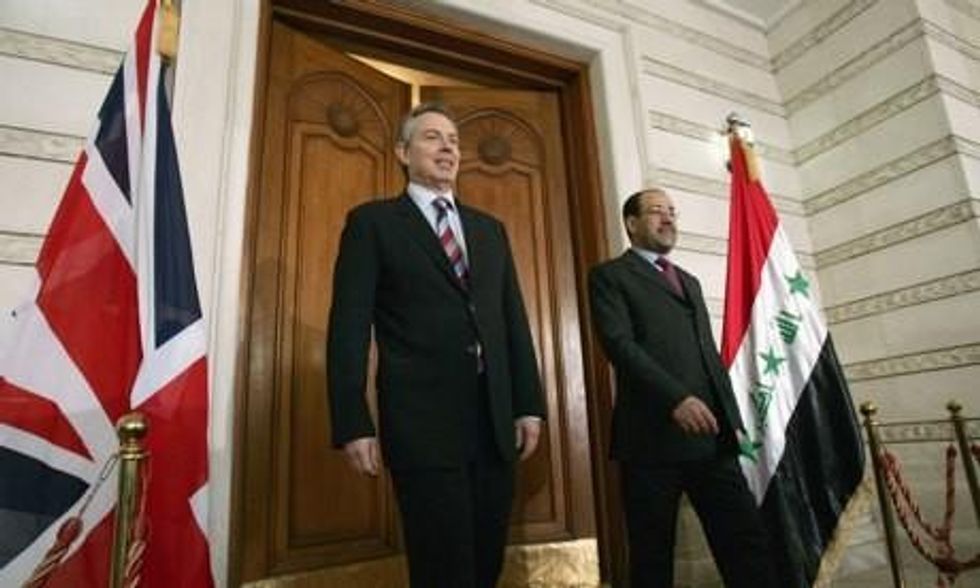On Friday 17 January I got the opportunity to perform a citizen's arrest on Tony Blair for crimes against peace, namely his unprovoked war against Iraq. The purpose of this citizen's arrest was to bring the subject back into the mainstream media and to remind people that Blair is a war criminal. I understood that he would not take me up on the offer to accompany me to a police station; it would be naive of me to believe that he would come voluntarily. My attempt has been widely reported across the world, with many supporting my decision.
To quote Desmond Tutu: "The then leaders of the United States and Great Britain fabricated the grounds to behave like playground bullies." Tutu pointed out that different standards appear to be set for prosecuting African leaders and western ones - the death toll during and after the Iraq conflict is sufficient on its own for Blair and George W Bush to be tried at the international criminal court. I am inclined to agree that Blair is partly responsible for the deaths of between 100,000 and one million people since 2003, depending on which estimates you believe. The United Nations estimates that in the last year alone at least 7,818 civilians and 1,050 members of the security forces were killed in violent attacks across Iraq - the highest death toll in five years.
Analysis of the war from a legal standpoint is not something anyone should be confused about. The then UN secretary general Kofi Annan said in September 2004: "From our point of view and the UN charter point of view, it [the war] was illegal." The violations of the UN charter are a serious matter. It was created to promote international co-operation and to achieve peace and security. Blair's actions flew in the face of this agreement, unleashing a hellish wave of violence that is still ongoing. The war in Iraq may well have helped to boost al-Qaida recruitment, according to a 2004 report by the International Institute for Strategic Studies, which stated: "It is probable that recruitment generally has accelerated on account of Iraq." Yet it seems all of this has been forgotten.
The soon-to-be-published Chilcot report is expected to contain damning evidence surrounding how Blair and Bush jointly engaged in a rush to war to topple Saddam Hussein in the face of warnings of the risks of triggering sectarian divisions across the region. Blair lied to this country and the international community in 2003, and he is still perpetuating these same mistruths. There has been some backlash against Blair's Observer article this weekend, calling him out on inaccuracies. As Jonathan Eyal, of the Royal United Services Institute, puts it: "It was not the lack of sufficient knowledge about history and religion which led to the Iraqi debacle, but the lack of restraint among politicians who had all the relevant information at their fingertips."
When I confronted Blair he told me I should be "more concerned with Syria". Yet if he had come clean about his decisions to go to war, if he had not mislead the international community on his motives, we would not be seeing a unanimous dragging of heels when it comes to intervention in Syria. The international community is scared to intervene in Syria because of the mess Blair and Bush made of Iraq.
In 2004, in a statement to the Butler inquiry, Blair said: "I have to accept, as the months have passed, it seems increasingly clear that at the time of invasion, Saddam did not have stockpiles of chemical or biological weapons ready to deploy." We have more detailed and reliable intelligence about Syria than we were ever presented on Iraq, yet because of the haste and ongoing lies from Blair, politicians and the public are not supporting fighting for human rights and peace in the Middle East.
Let's hope that Blair faces justice soon, then the mess he made will no longer cloud difficult decisions like choosing real humanitarian intervention when it is so needed.


